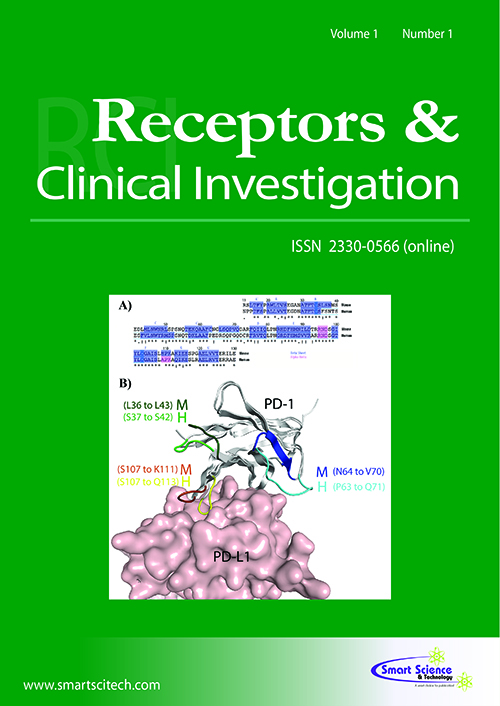How missense mutations in receptors tyrosine kinases impact constitutive activity and alternate drug sensitivity: insights from molecular dynamics simulations
Abstract
The fundamental oncology-related research is required for a deeper understanding of the molecular mechanisms associated with the normal and/or abnormal protein functions, which are closely related with structure and dynamics of the macromolecules involved in these process. The most common origin of oncogenic events is related to missense mutations. Mutation-induced structural effects promoted by oncogenic mutations in receptor tyrosine kinases (RTKs), are not yet fully characterized. Computational biology completes and enriches experimental data, producing a novel vision of molecular mechanisms governing RTKs activity. In series of our papers, we studied the structural and dynamical features of native and mutated RTKs from III family (KIT and CSF-1R), yielding a detailed description of their mechanisms of activation, ligand-depend for the native proteins and constitutive for the distinct mutants. The mechanisms of RTKs activation are described in terms of allosteric regulation between coupled regulating fragments of the protein, juxta-membrane region (JMR) and activation (A-) loop. As some mutations promote resistance to the clinically-used drugs, we analyzed the affinity of imatinib to these therapeutic targets. The computationally-obtained (in silico) data were correlated with in vivo and in vitro observations, thus validating our numerically-based accounts. Going forward, clinical validation of cancer-related models and simulations are cornerstones key of translation of in silico data into biomedical research, at clinical and pharmacological levels.











